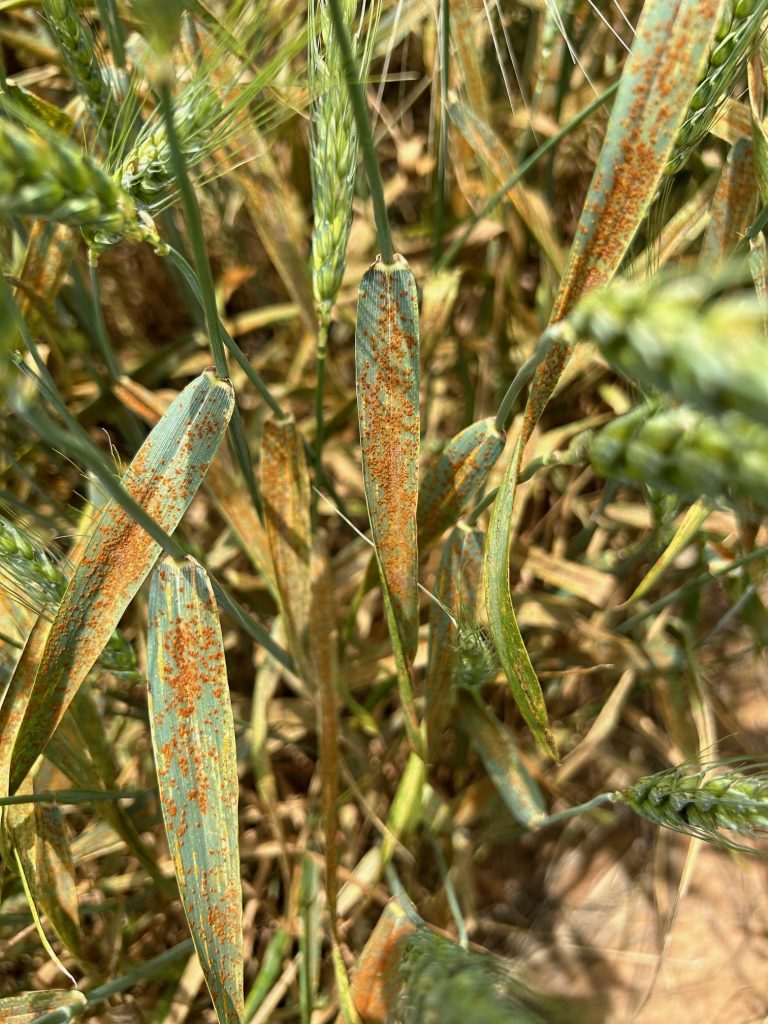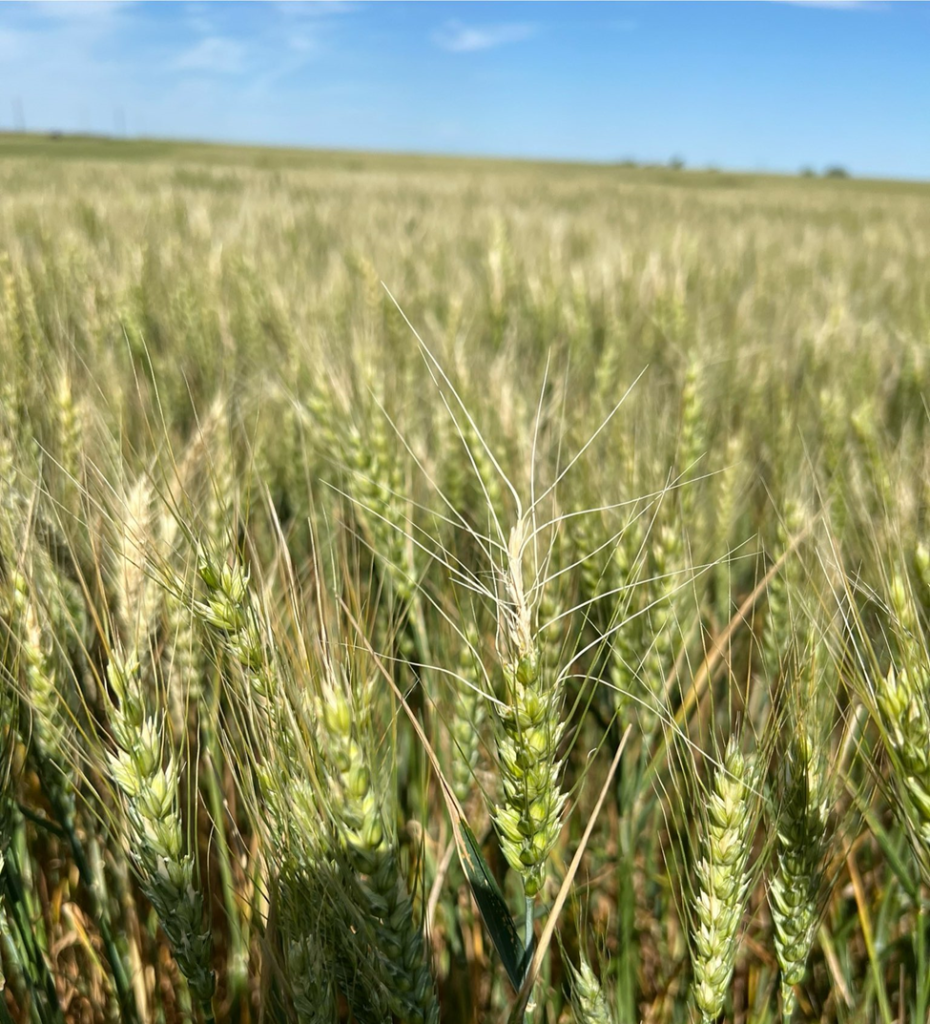Wheat Disease Update – 13 May 2024
Meriem Aoun, Small Grains Pathologist
Department of Entomology & Plant Pathology, Oklahoma State University
This season, the three rust diseases were observed in Oklahoma. Stripe rust prevailed in April and was reported in multiple locations in Oklahoma. Stripe rust distribution in Oklahoma and the dates of first detection for each county are described at https://wheat.agpestmonitor.org/stripe-rust/. Leaf rust was first observed around the last week of April-early May in different locations in Oklahoma, including Stillwater (Payne County), Chickasha (Grady County), Lahoma (Garfield County), and Kingfisher (Kingfisher County). High leaf rust pressure was observed this week at Stillwater and Lahoma with high disease severity on susceptible cultivars (Figure 1). Locations that received moisture recently will most likely have high leaf rust pressure in the coming weeks. On May 10, stem rust (Figure 2) was also found at low incidence on a few susceptible wheat breeding lines at Stillwater. On May 13, Dr. Amanda Silva also reported stem rust at Kildare (Kay County).

Figure 1. Leaf rust on the susceptible wheat cultivar Whistler (Stillwater, OK; May 11, 2024; Photo: Rajat Sharma).

Figure 2. Stem rust on a susceptible wheat breeding line (Stillwater, OK; May 10, 2024; Photo: Brian Olson).
Common root rot (caused by Bipolaris sorokiniana) and Fusarium crown/root rot were reported in multiple wheat fields where dry conditions prevailed including Kingfisher, Alva (Woods County), and Cherokee (Alfalfa County). Infected plants were stunted, white, with discolored roots and lower stems. Peeling leaf sheaths in the lower stem internodes showed brown and pinkish discolorations on infected plants. Pink discoloration indicates infections by Fusarium species (Figure 3). Infected plants with root rot died prematurely and produced white heads that were either sterile or filled with shriveled grain (Figure 4). Freeze damage on wheat heads was also observed at Alva, OK. However, freeze damage only affects the heads (Figure 5), whereas root rots are usually associated with the whole plant turning white with brown or pinkish discoloration in the lower stem.

Figure 3. Plants showing symptoms of Fusarium root/crown rot (Alva, OK; May 10, 2024; Photo: Dr. Amanda Silva).

Figure 4. White heads caused root rots at Cherokee, OK (May 10, 2024; Photo: Dr. Amanda Silva).

Figure 5. Freeze damage on wheat heads (Alva, OK; May 10, 2024; Photo: Dr. Amanda Silva).